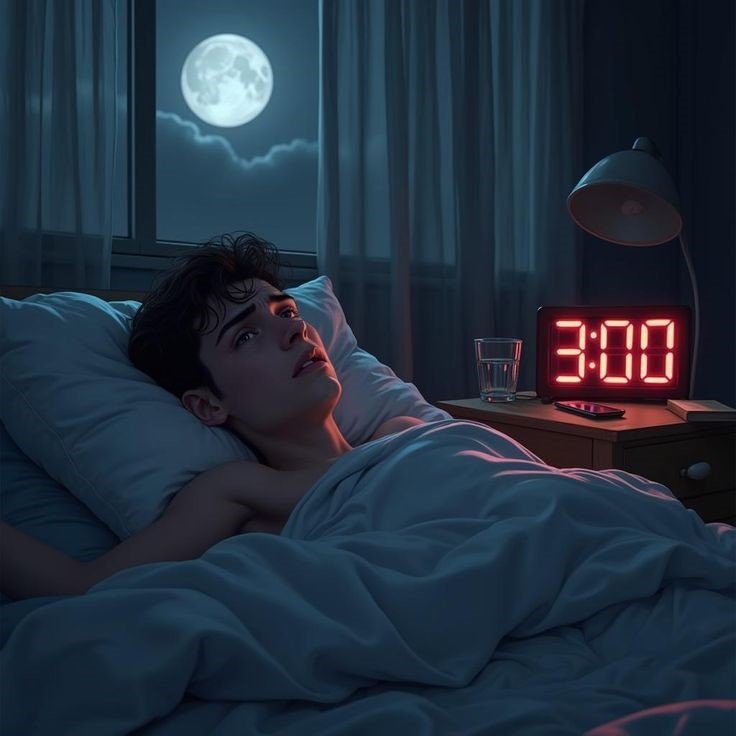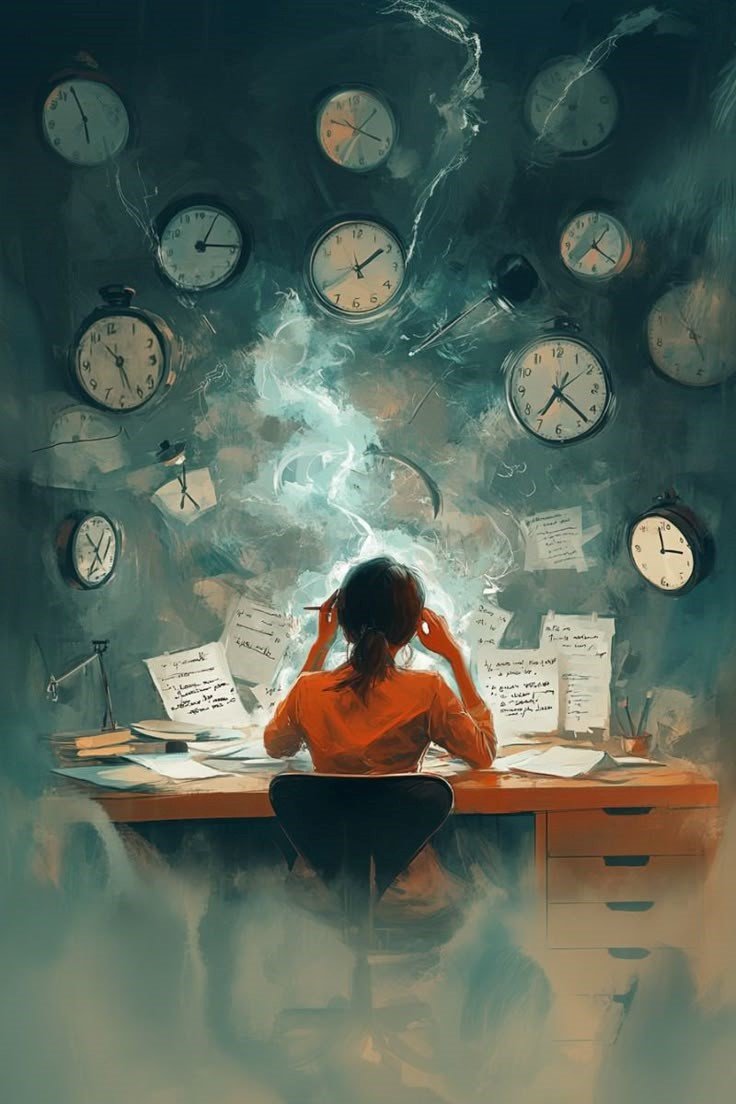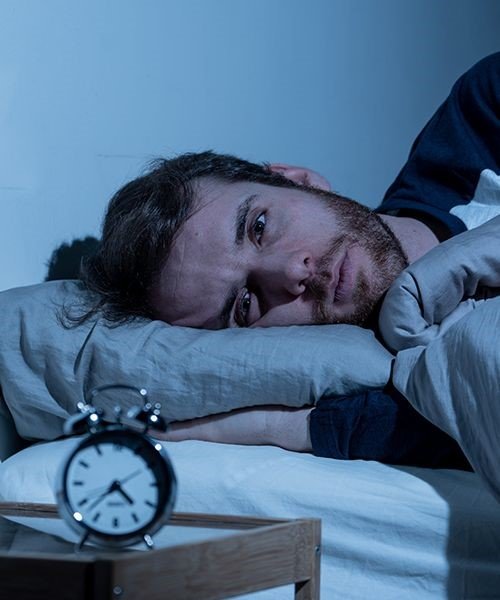How many hours should an ADHD person sleep?
I’ll be honest, when clients first ask me “How many hours should an ADHD person sleep?” I usually smile and say, “Well, let me tell you what actually happens at 11:30 p.m. in most ADHD households…” Because if you live with ADHD (or you parent a child who does), you already know it’s rarely just about a number. It’s about the racing mind, the “one more YouTube video” spiral, the hyperfocus that sneaks in at the worst possible hour, and the endless frustration of being tired but wired.
I can still picture that late-night Zoom call with Maya, a college student I’ve coached for a while. “I know I should go to bed,” she said, rubbing her eyes, “but at night my brain finally wakes up.” That’s the crux, really. For many kids and adults with ADHD, the evening becomes a magnet for thoughts, projects, and fluorescent rabbit holes. Bedtime stretches, sleep becomes irregular, and the alarm rings while everything feels heavy and gray.
Here’s the silver lining, though: sleep is still on the table. We’re not hunting for a miracle that “cures” ADHD; we’re charting the tug-of-war between hyperactive brains and a sleepy world, and we’re letting curiosity lead. That’s the mission of this article.
We’ll nail the science-backed number of sleep hours your brain craves, tease apart why the quality of that sleep is worth as much as the clock hands, and, most importantly, build a morning-activity to sunset-action plan that actually fits real, chaotic lives. Whether you’re the parent working through a bedtime horror show or the adult who’s pushed off consistent sleep for months, what’s coming is hands-on, not theoretical. My hope is that the tips feel doable tonight.
Because sleep is not a perk; it’s the steering wheel for calmer ADHD days, sharper attention, and the kind of energy that feels like core-strength, not an expensive snack. Let’s get to it.
Why Sleep Matters So Much in ADHD
Ever had a morning where the alarm feels like a taunt, the coffee goes down like a prescription, and your thoughts not so much swim as float belly-up? That’s what staving off good sleep usually brings, and when you slide ADHD on top, the toll goes exponential.
For folks with the disorder, missing Z’s isn’t just an inconvenience; the very traits you work so hard to finesse, lack of focus, hasty choices, mood swings, the endless executive function logjam, become amplified. Research backs it: nearly three-quarters of the ADHD community wrestle with sleep problems.
That’s not background noise; it’s the drum we marched to. Rest lays the plumbing for steadiness, for mood that stays in the same county, for the brain deciding, at the right time, to archive files rather than impulse-emoji. Drag down the rest, and managing ADHD feels like bailing the Titanic with a coffee cup.
I’ve watched it too often in coaching: a brilliant plan, a well-structured routine, and then a single week of shaky sleep. Suddenly deadlines disappear into the mist, tasks bounce like forgotten laundry, and emotions flare like a stove left on high. It’s the disorder’s volume abused in one cut: the missed rest turns the dial to eleven and amplifies the portion of you that says “why wait’’ to runaway consequences crime.

The ADHD–Sleep Feedback Loop
Here’s the tricky part: sleep and ADHD feed into each other in a vicious cycle:
- ADHD makes it harder to fall and stay asleep.
Racing thoughts, hyperfocus, or nighttime anxiety keep the brain alert when it should be shutting down.
- Poor sleep makes ADHD symptoms worse.
Inattention feels heavier, emotional swings sharper, and the brain fog thicker.
- Worsened symptoms make it even harder to sleep.
Cue frustration, late-night scrolling, or reliance on stimulants/energy drinks.
This is what I often call the “ADHD Sleep Burnout Triangle” (a phrase that stuck with me after I first read about it in research). Lack of sleep → worsening ADHD symptoms → burnout and emotional dysregulation → more trouble sleeping.
Why Quality Matters as Much as Quantity
One more thing a lot of individuals forget about, its not only about the hours count Clients have said to me. “But I slept for eight hours! I said to myself, “How can I still be so tired? The Answer: Generally, Insomnia or Poor-quality Sleep.

Common problems dealt with more by ADHD brains: Poor sleep (insomnia, tossing & turning, waking fatigued) Co-occurring sleep disorders, such as snoring or sleep apnea Fragmented sleep (you are waking often during the night without realising it) Sure, those recommended hours count , but if the sleep architecture (deep, restorative sleep cycles) are being constantly interrupted by various factors … that localised architecture recharges the brain a lot less than it should be.
California Connection
Since we’re focusing on California, let me say this: our bright, sunny mornings can actually be a gift for ADHD brains. Exposure to natural light early in the day helps regulate circadian rhythms (your body’s internal sleep-wake clock). But many of my California clients also struggle with the late-night culture here, Silicon Valley tech workers coding until 2 a.m., or students on West Coast time gaming with friends across different time zones. That combination, late nights + bright mornings, creates a tug-of-war on ADHD sleep cycles.
How Many Hours Should an ADHD Person Sleep?
Sleep Hours and ADHD
One of the common questions I receive is, “How much sleep do I really need if I have ADHD?” Short answer: Maybe, but most likely more than the standard suggestion The National Sleep Foundation would say 7–9 hours for adults, but many ADHDers need closer to 8–10 in order to be functioning optimally. Why the extra time? If your self-care routine is even marginally compromised, ADHD brains take much longer to shut down and recover , much unlike the rest of society , only reinforcing the importance of maintaining appropriate sleep regimens.
Quality Over Quantity
Remember: it’s not just the hours. Quality matters more than quantity. A restless 9-hour sleep doesn’t help as much as a focused, restorative 7.5-hour sleep. Key tips to improve sleep quality:
- Consistent schedule – go to bed and wake up at the same time daily.
- Morning light exposure – helps set your circadian rhythm.
- Evening wind-down – avoid screens and bright lights 1–2 hours before bed.
- Limit stimulants – caffeine, nicotine, and energy drinks can wreak havoc on ADHD sleep.
Evening Sleep Patterns and Common Disorders
Many adults with ADHD are “night owls”, naturally preferring later bedtimes. Combine this with work or school schedules that require early wake times, and sleep debt piles up fast. Common sleep challenges include:
- Delayed Sleep Phase Syndrome (difficulty falling asleep until very late)
- Restless Legs Syndrome
- Sleep fragmentation (waking multiple times at night without realizing)
These factors reinforce why more total sleep and better sleep hygiene are crucial for ADHD brains.
Practical Strategies to Improve Sleep in ADHD
Establish a Consistent Nighttime Routine
ADHD brains thrive on structure. Failing to establish a regular pre-sleep routine tells your brain that you might still be in the mood for stuff. Examples:
- Take a warm shower or bath
- Read a calming book
- Practice light stretching or yoga
Off topic, but also possible journaling or planning your day ahead A consistent routine even if 10 to 15 min, adds a lot to productivity.
Reduce Evening Stimulants
Caffeine, nicotine, and sugar can delay sleep onset or cause fragmented sleep. Tips:
- Avoid caffeine 6–8 hours before bed
- Limit sugary snacks in the evening
- Consider decaf or herbal teas
Leverage Natural Light and Circadian Techniques
Exposure to bright (natural sunlight) light at the morning to kick off your internal clock and dull (dim artificial) lighting in the night signaled your brain that it must start releasing melatonin. Try: • Morning sunlight exposure (10–20 minutes)
- Switch to evening dim light, no screens 1–2 hrs before bed
If you simply must use the screen (no judgements here), consider getting a pair of blue-light blocking glasses.
Mind Relaxation Techniques
Racing thoughts are common in ADHD. Techniques to calm the mind:
- Deep breathing exercises
- Guided meditation or mindfulness apps
- Progressive muscle relaxation
- Journaling thoughts before bed to “offload” your mind
Nutrition, Exercise, and Lifestyle Tips for Better Sleep in ADHD
Sleep-Friendly Nutrition
What you eat can impact sleep quality. Key tips:
- Include foods rich in magnesium (nuts, seeds, leafy greens)
- Try tryptophan-containing foods (turkey, eggs, dairy) to support melatonin
- Avoid heavy meals 2–3 hours before bed

Regular Physical Activity
Exercise helps regulate sleep cycles and reduce ADHD hyperactivity. Recommendations:
- Moderate exercise 20–60 minutes per day
- Avoid intense workouts right before bedtime
- Outdoor activities boost sunlight exposure for circadian rhythm
Stress Management and Lifestyle Habits
Daily habits can influence sleep quality. Try:
- Keeping a consistent wake-up time, even on weekends
- Limiting screen time 1–2 hours before bed
- Practicing relaxation techniques like meditation, deep breathing, or journaling
Enhancing Natural Sleep Cycles
Encouraging your body’s natural rhythm improves sleep:
- Morning sunlight exposure
- Evening dim lighting
- Consistent bedtime and wake-up schedule
Cognitive-Behavioral Techniques (CBT) and Complementary Therapies for ADHD Sleep
Cognitive-Behavioral Techniques for Sleep
CBT can address sleep problems by changing thoughts and habits:
- Identify negative beliefs about sleep
- Replace them with realistic, calming thoughts
- Develop a structured bedtime routine
- Use sleep restriction and stimulus control techniques
Complementary Therapies (Summary)
Some people find these helpful for sleep improvement:
- Melatonin supplements in low doses
- Herbal teas like chamomile or valerian
- Mindfulness, yoga, or light massage
Sleep challenges are a common and often underestimated aspect of ADHD. Whether it’s difficulty falling asleep, delayed sleep phase, restless nights, or medication-related disturbances, these issues significantly impact focus, emotional regulation, and overall well-being. By adopting consistent sleep routines, managing environmental factors, addressing comorbid conditions, and exploring complementary strategies like mindfulness or light therapy, individuals with ADHD coaching can improve both the quality and quantity of their sleep.
Remember, sleep is not just about hours it’s about restorative rest. Small, practical steps, paired with professional guidance, can make a meaningful difference.
Ready to transform your sleep and reclaim your focus? Contact our ADHD specialists at Heal-Thrive today for personalized coaching, download our practical sleep guide, or schedule a one-on-one session to start building healthier sleep habits tonight. Your brain and your life will thank you.

